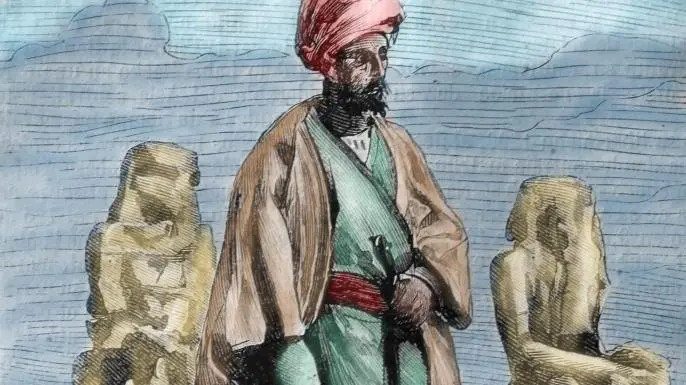
Ibn Battuta embarked on his extensive travels with several goals and aspirations in mind, which can be summarized as follows:
**1. Religious Fulfillment:
- Hajj: His initial motivation was to perform the Hajj pilgrimage to Mecca, a significant religious duty for Muslims. The pilgrimage was a spiritual journey and a major goal in his life.
- Exploration of Islamic Lands: Ibn Battuta sought to explore the various centers of Islamic learning and culture across the Islamic world. His travels were motivated by a desire to deepen his understanding of Islamic practices and jurisprudence.
**2. Cultural and Geographical Knowledge:
- Exposure to Different Cultures: Ibn Battuta aimed to experience and understand the diverse cultures, traditions, and societies across the Islamic world and beyond. His travels allowed him to witness and document the rich variety of cultural practices.
- Geographical Exploration: He was interested in learning about the geography of different regions, including cities, trade routes, and landmarks. His journeys helped map out the world as it was known in the 14th century.
**3. Professional and Social Advancement:
- Career Opportunities: Throughout his travels, Ibn Battuta held various positions, including judge and diplomat. His travels provided opportunities for professional advancement and engagement with influential figures.
- Building Connections: His journeys allowed him to build connections with rulers, scholars, and travelers, which helped in his professional and personal growth.
**4. Documenting and Sharing Knowledge:
- Recording Experiences: Ibn Battuta aimed to document his experiences and observations. His detailed accounts were intended to share the knowledge he gained with others and provide a comprehensive record of his travels.
- Contribution to Knowledge: By documenting the places he visited, the people he met, and the customs he observed, Ibn Battuta contributed valuable information to the broader understanding of the medieval world.
**5. Personal Fulfillment and Adventure:
- Curiosity and Exploration: Ibn Battuta was driven by a sense of curiosity and adventure. His travels reflect a personal desire to explore new places and experience different ways of life.
- Personal Growth: His journeys were also a means of personal growth, allowing him to gain new perspectives and enrich his understanding of the world.
In summary, Ibn Battuta’s goals encompassed a blend of religious devotion, professional advancement, cultural exploration, and personal fulfillment. His travels allowed him to achieve these objectives while providing a lasting legacy through his detailed accounts of the medieval world.
Was this helpful?
0 / 0







